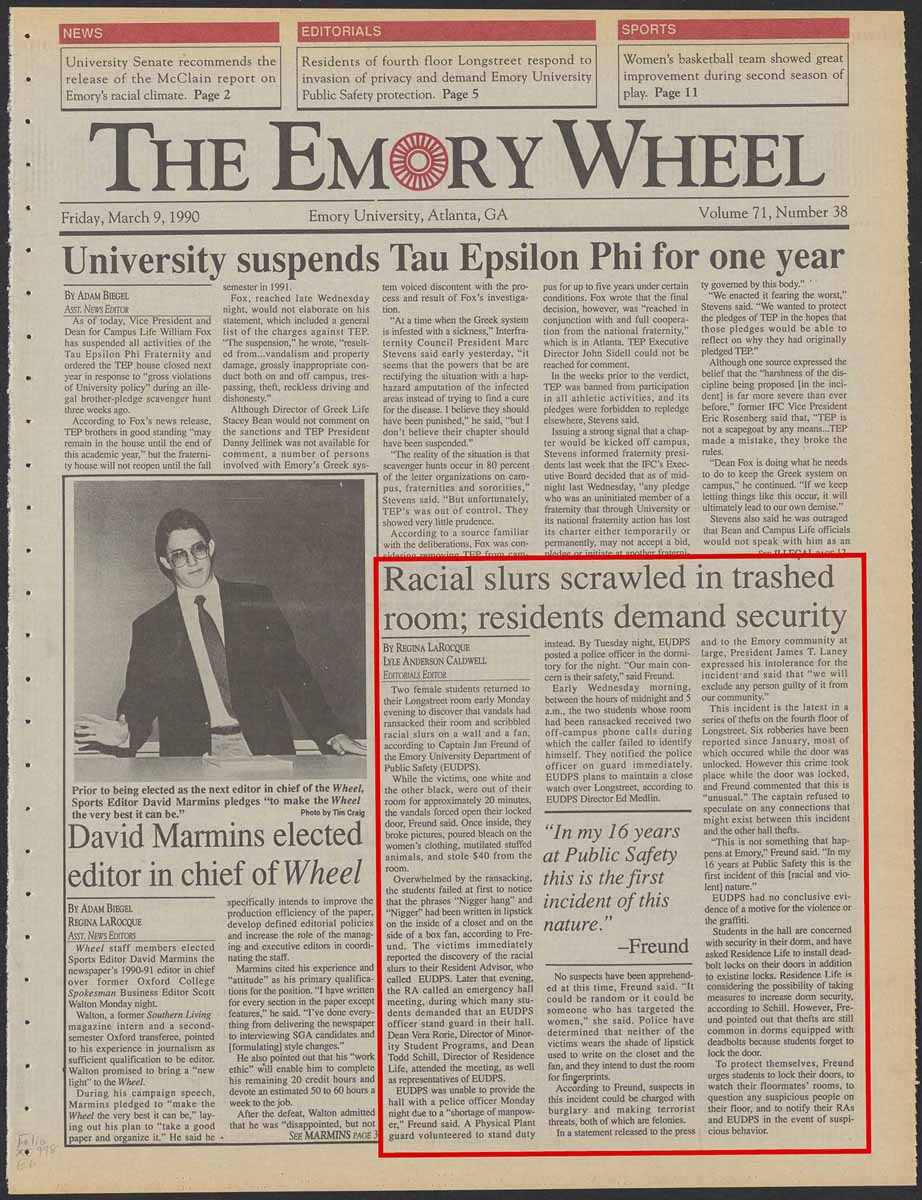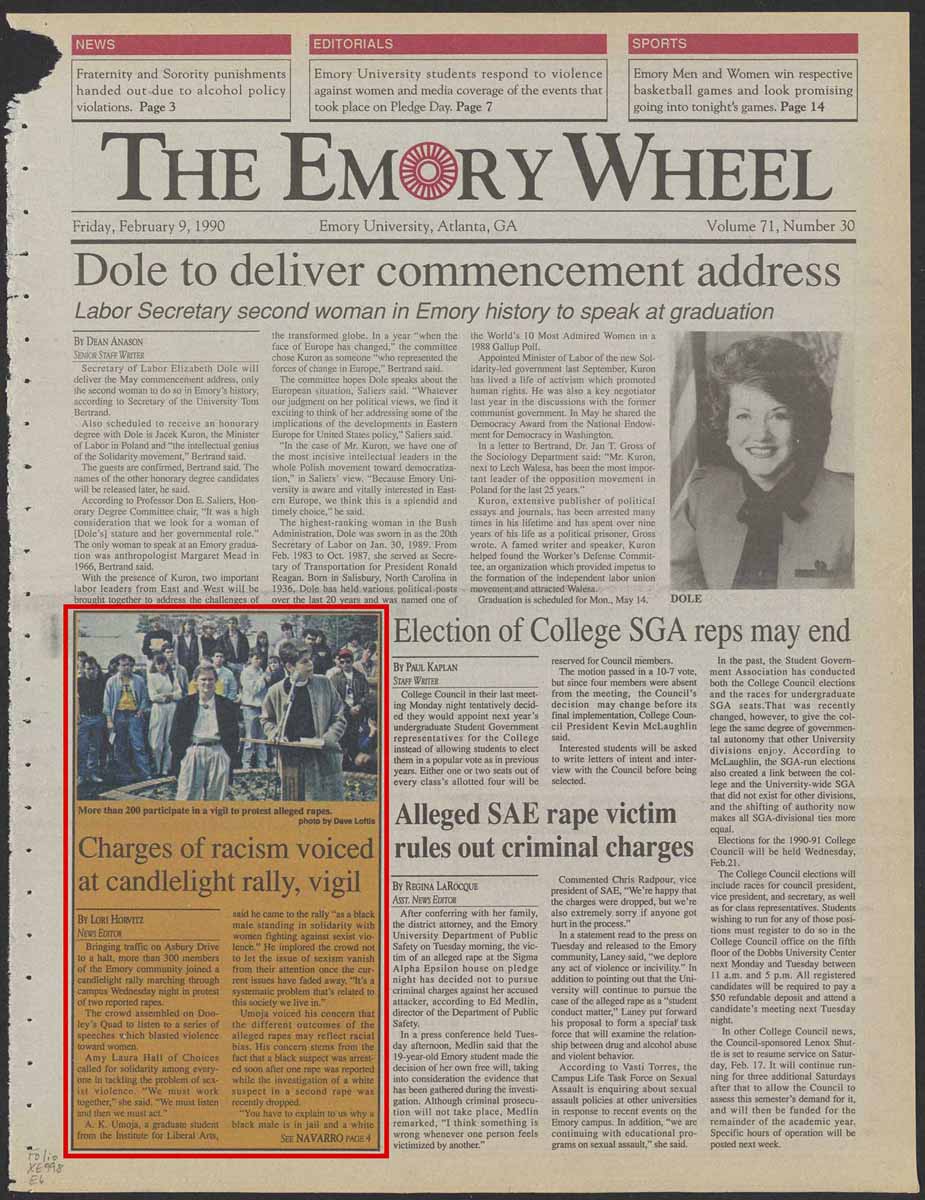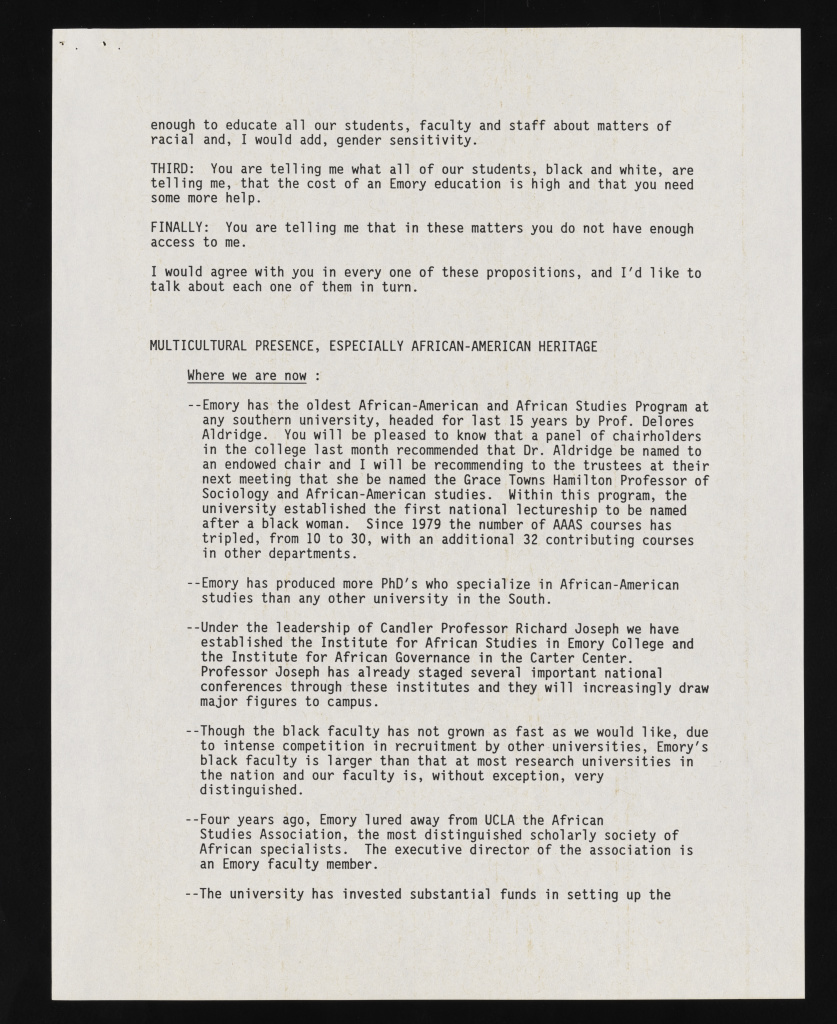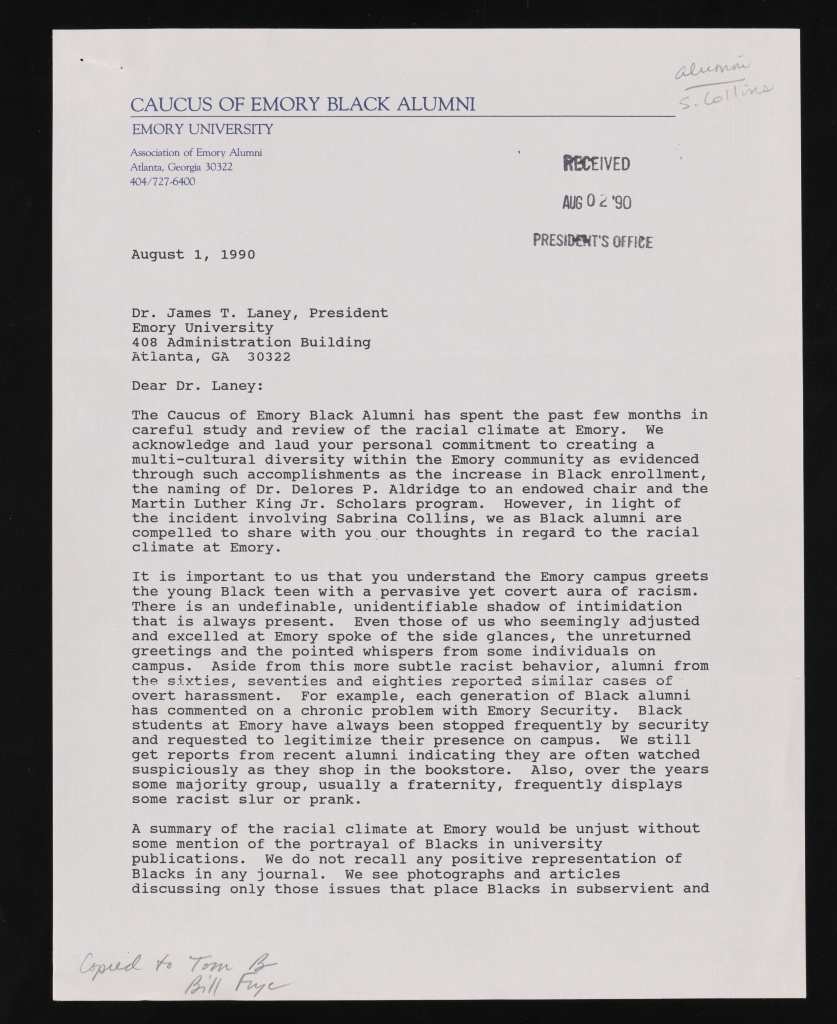1990
Students Against Racial Inequality (SARI)
In the late 1980s and early 1990s, Emory had been an integrated institution more than 25 years. However, Black students were still struggling to be equals at Emory. A series of events in led to intersecting issues but chief among them remained the need to improve campus culture to allow Black students to thrive.
First, two accusations of sexual assault on campus highlighted the need for increased attention to student safety from sexual violence. Two students, one Black, one white, were accused of the assaults, but only the Black student was arrested, while the white student’s charges were dropped.
In reaction, President James T. Laney commissioned a task force to address sexual assault whose charge included a call for increased sensitivity to issues of race and ethnicity.
Around the same time, a Black student’s dorm room was vandalized. Her room was trashed and racial slurs were written on her wall. This event sparked protests on campus immediately and attracted national media attention. Students organized the group Students Against Racial Inequality (SARI) and made new demands on the university to improve Emory’s treatment of Black students, faculty, and staff.
1990Explore
Events Spark Activism
Questioning Emory’s stated commitments to diversity and equality
The climate on campus in 1990 was tense, as multiple events that year and in years prior had called into question Emory’s stated commitments to diversity and equality. Two sexual assaults and the vandalism of a student’s room within a month of each other would be the catalyst for more activism by Black students.
Administration Responds
April of 1990
SARI’s demands were presented in April of 1990 to President Laney and addressed many of the same concerns raised in the 1969 BSA demands. The administration reacted negatively to the demands with public statements by President Laney concluding the demands “violate the principles of openness.”
Need for Change
Task Force on Security and Responsibility
Following a tumultuous beginning of the semester, the Task Force on Security and Responsibility released its report to the Emory community. The report’s primary focus was sexual violence but included a few provisions for increasing training related to racial sensitivity. While President Laney didn’t agree to meet these demands directly, he would eventually state his intention to address specific issues.




